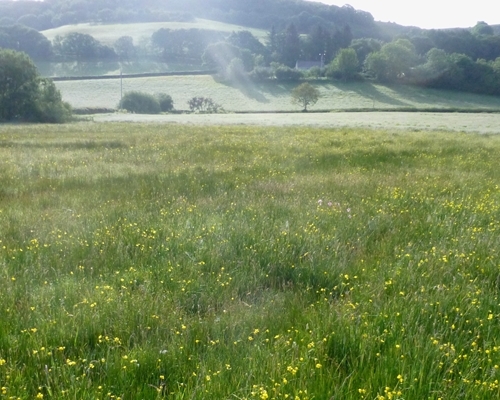Written by Owen Williams, renowned artist and Woodcock enthusiast
2 Minute Read

GWCT Cymru are very much involved in working with farmers in Wales and soil health is firmly on the agenda in several ongoing projects across the country. My recent study on why feeding woodcock prefer some pasture fields over others by looking at variations in soil health has fired my interest in this important topic.
Remember those infant school days when we all grew cress simply by sowing seed on moist cotton wool? Apart from the miracle of watching seeds germinate this also proves that plants can grow in any substrate so long as you supply water and nutrition. The demand for abundant and cheap food has forced modern intensive farming a long way down this road as we treated our soils as a simple substrate and just added fertiliser to feed our crops. In doing so we have ignored the amazing ability of soils to unlock nutrients from dirt and even rock.
Recent research has revealed that mycorrhizal fungi that help feed plant roots with nutrients from soil are supported by specific symbiotic bacteria that mine these important nutrients from some of the basic ingredients of soil such as clay and stone. As in any ecosystem there are good bacteria and bad bacteria and if we can encourage the good bacteria to dominate they allow less room for the bad bacteria that are the cause of many diseases. So a fully functioning soil brings many advantages, conversely if soil is badly treated its natural functions will be diminished.
This whole inter-dependent system is disturbed by intensive farming practices. Mycorrhizal fungi and bacteria have evolved to thrive at particular soil depths and conditions, so turning this whole community on its head through ploughing severely damages these important microbial communities that take a long time to restore themselves to their full capacity again.
Deeper root penetration means better mycorrhizal and bacterial activity in our soils, so excessive grazing that stunts grass root development, or monoculture lays lacking deeper rooting species means that many soils are not functioning fully. This has a negative impact on fertility, its water holding capacity is limited leading to increased run-off and soil loss, its resilience against compaction is reduced and it can’t capture carbon as well.
Modern regenerative grazing practices and zero till being adopted by some farmers are beginning to improve our soil health in Wales. Livestock farming has come under heavy attack from the vegan lobby in recent years with their over simplistic perspective that meat is bad for the planet. Ironically our pasture fed livestock farmers may well be in the vanguard of carbon capture if we can do what comes naturally and allow our soils to function properly rather than treating them as cotton wool.